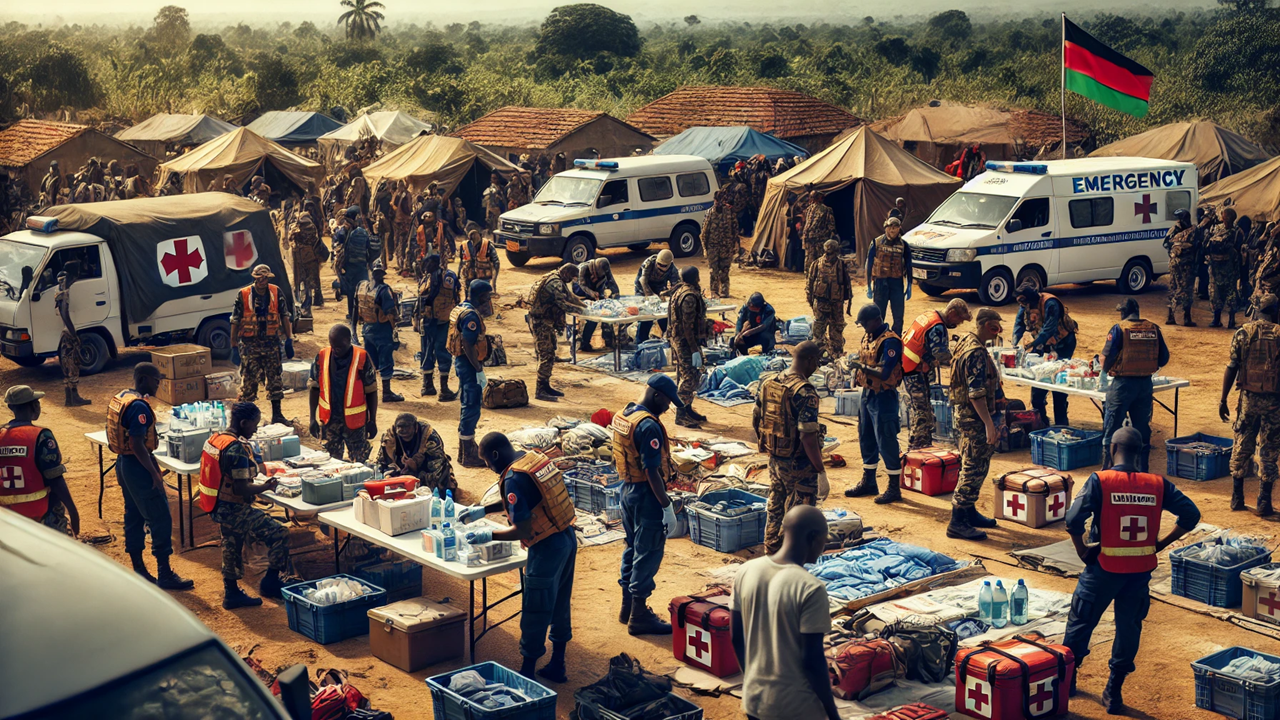Strengthening Health Logistics in Malawi: WFP's Simulation Exercises Make a Difference
Malawi's emergency preparedness has significantly improved through targeted simulation exercises conducted by the WFP in collaboration with local stakeholders. These exercises enhanced planning, coordination, information sharing, and supply chain management, leading to more effective responses to health emergencies. The report recommends regular integration of such exercises and continued investment in preparedness activities.

Enhancing Preparedness
The importance of robust logistics cannot be overstated in a country frequently beset by climate hazards and health emergencies. Malawi, with its history of devastating cyclones and recurrent cholera outbreaks, has seen its emergency preparedness put to the test. A recent report by the United Nations World Food Programme (WFP), titled "WFP Malawi 2024 – Supply Chain Simulation Exercises Assessment and Recommendations," highlights significant strides made through targeted simulation exercises to bolster the nation's health supply chain.
These simulation exercises, known as SimEx, were part of a collaboration between WFP, the Ministry of Health (MoH), and the Department of Disaster Management Affairs (DODMA). Their goal was simple yet ambitious: to enhance the logistics response capabilities of Malawi’s health supply chain actors. The exercises focused on four key areas: planning, coordination, information sharing, and decision-making.
Realistic Scenarios, Real Results
The SimEx drills were not mere tabletop exercises; they simulated realistic and dynamic scenarios, including the aftermath of tropical cyclones and cholera outbreaks. Participants were thrust into high-pressure environments where they had to plan, coordinate, and execute logistics responses as they would in real-life crises.
The results of these exercises were telling. The assessment found an 81% average increase in the skills and knowledge of the participants. These improvements spanned across all four targeted capabilities:
Planning: Participants reported better visibility of organizational capacities and improved forecasting. Comprehensive preparedness plans were developed, leading to more timely and effective emergency responses.
Coordination: There was a noticeable enhancement in the connections between stakeholders, leading to more effective information sharing and better internal coordination within departments.
Information Management and Decision-Making: Increased awareness and use of information management tools improved the shared data quality, enabling more informed decision-making during emergencies.
Supply Chain Management: Organizations became more focused on logistics activities, improved procurement and prepositioning of supplies, and better engaged with last-mile delivery stakeholders.
Key Recommendations
The report didn't stop at assessing improvements. It laid out clear recommendations to ensure that these gains are not only maintained but also built upon. Key among these recommendations was the integration of SimEx as a regular event in the national emergency preparedness portfolio. Emphasizing comprehensive planning, strengthening coordination mechanisms, enhancing information management, and optimizing supply chain management were all highlighted as essential steps.
The assessment noted that while significant progress had been made, challenges such as limited resources, coordination barriers, and gaps in information sharing still needed addressing. Overcoming these hurdles will require continued investment in simulation-based training and the unwavering commitment of all stakeholders involved.
A Model for Future Preparedness
The SimEx initiative serves as a valuable model for other regions facing similar challenges. By fostering a culture of preparedness and collaboration, Malawi's health supply chain actors are now better equipped to respond to emergencies swiftly and efficiently. The success of these exercises underscores the critical role of simulation in emergency preparedness.
The WFP's efforts, supported by various stakeholders, have demonstrated that through targeted training and collaboration, even the most daunting logistics challenges can be met with resilience and readiness. As Malawi continues to strengthen its emergency response capabilities, the lessons learned from these simulation exercises will undoubtedly pave the way for more robust and effective health logistics in the future.
The "WFP Malawi 2024 – Supply Chain Simulation Exercises Assessment and Recommendations" report provides a comprehensive overview of how well-designed simulation exercises can significantly enhance emergency preparedness. By investing in these exercises and implementing the report's recommendations, Malawi is setting a strong example of how to build resilient health supply chains capable of withstanding the pressures of public health emergencies.
- FIRST PUBLISHED IN:
- Devdiscourse










